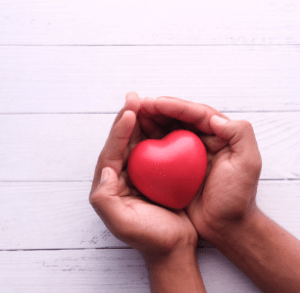“Depression is a common condition, yet many people are unaware of the symptoms and the profound impact it can have on people’s lives. It can be a very isolating and lonely experience.”
Dr Claire Hayes, Clinical Director at Aware
What are the symptoms?
When it comes to remembering things, it can be helpful to have a memory technique such as an acronym or rhyme. With that in mind, at Aware we use the acronym F.E.S.T.I.V.A.L. to help us remember the eight main symptoms of depression.
- F eeling – sad, anxious, guilty
- E nergy – low energy, feeling tired or fatigued
- S leeping – under or over-sleeping, any change to normal sleep pattern
- T hinking – poor concentration, thoughts slowed down
- I nterest – loss of interest in hobbies, family or social life
- V alue – low self esteem
- A ches – physical aches and pains with no physical basis
- L ife – loss of interest in living, thinking about death, suicidal thoughts
What to do?
If you find yourself experiencing five or more of these symptoms, lasting for a period of two weeks or more, please speak to your GP or mental health professional. It is helpful to speak to a professional to ensure you to get the correct diagnosis. In addition, we all have our own unique experiences, so working together, you can decide which approach to treatment is best for you.
You do not have to go through this alone, reach out to friends and family, take support when it is offered.
“Depression doesn’t discriminate. Anyone of us, irrespective of age, gender or background can be affected and symptoms can range from mild to severe. It’s important to remember that recovery is possible but early recognition, support and ongoing management of the condition are key to a positive outcome.”
Dr Claire Hayes

If you experience depression, you may also like to read:
Helpful tips for coping with depression
What resources does Aware offer?
Aware provides support, education and information services for people impacted by depression, bipolar disorder and related mood related conditions.
| Support | Aware provides free support services to individuals experiencing depression, bipolar disorder, anxiety, or other mood related conditions as well as to people who are concerned about a loved one. Support services include Support & Self Care Groups and a Support Line and Support Mail service. |
| Education | Aware also offers a range of free evidence informed education programmes to include the Life Skills Group Programme and Life Skills Online Programme, which are based on the principles of CBT and statistically proven to be of benefit to people experiencing mild to moderate depression. The Relatives & Friends Programme is designed specifically for those supporting a loved one and focuses on the self care of the supporter. The Living Well With Bipolar Disorder Programme is an information and support programme, designed for people with a diagnosis of bipolar disorder. |
| Information | Aware provides content about depression and bipolar disorder on the Aware Website to include information pages, blogs and videos. The Aware Webinar Series takes place each month on a range of topics connected to mental health and the back catalogue of webinars is available to watch back on Aware’s YouTube channel. |

This post is part of the Aware Mental Health Week (4-10 October 2021) campaign which is focused on causes, course and consequences of depression.
“With this campaign, we want to give people who are impacted by depression a voice. By sharing their inspiring stories, our goal is to provide hope, help people to feel less alone in their experience and most importantly empower anyone affected by depression to reach out for support.”
Dr Claire Hayes


